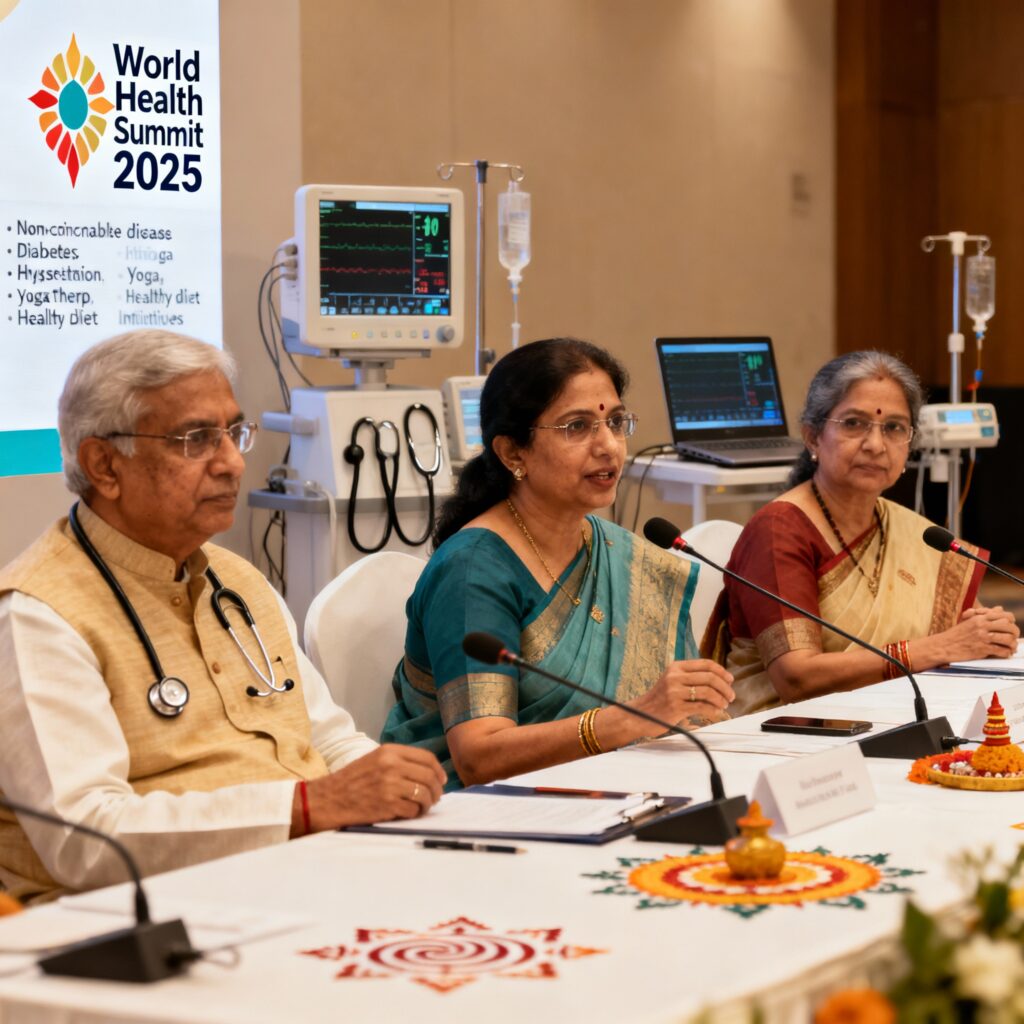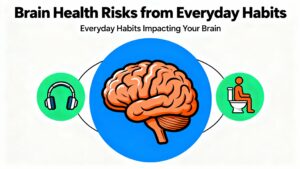There is a wealth of evidence on the impact of yoga in the management of cardiovascular diseases, reaching ABC targets in diabetes care, achieving healthier diets by cutting down on high-fat, high-sugar, high-salt, and ultra-processed foods, and improving access to antihypertensive medications, have led to a number of actions to reduce India’s rising non-communicable disease (NCD) epidemic.
Dr Sanghamitra Pati, Additional Director General, Indian Council of Medical Research (ICMR), and Dr Tanvir Kaur, Head, International Health Division, moderated a panel of experts at the ongoing World Health Summit, 2025, in Berlin and discussed the role that integrated interventions can play in addressing NCDs.
Dr V Mohan, Chairman, Madras Diabetes Research Foundation, shared on the need to prevent complications from diabetes, the importance of achieving ABC targets, and how to maintain control of HbA1c (blood sugar), blood pressure, and cholesterol.
The percentage of diabetes in India’s young adults is increasing, Dr Mohan stated, also mentioning the ICMR–INDIAB study, which is the largest epidemiological survey on diabetes conducted in India, which revealed an alarming statistic. More than 101 million Indians are living with diabetes and 136 million are pre-diabetic.
“Alongside medical management, interventions targeted to lifestyle are important and a healthy dietary intake and increased physical activity could prevent at least 50% of new Type 2 diabetes cases,” highlighted Dr Mohan.
Dr Bharati Kulkarni, Director, ICMR-National Institute of Nutrition, also indicated that dietary surveys have shown Indian diets are low in diversity and have moved toward eating more processed, high-fat, high-salt, and high-sugar foods, particularly in cities. Furthermore, Dr Kulkarni mentioned how initiatives such as Eat Right India, as well as dietary policies are trying to take steps to counter the trend by focusing on education, food labeling, and initiatives specifically targeting schools as part of public health initiatives.
While in the panel discussion, Dr Manoj Murhekar, Director, ICMR-National Institute of Epidemiology, Chennai, and Head, Epidemiology Division of ICMR had shared, how the India Hypertension Control Initiative (IHCI), has shown great outcomes in reducing hypertension.
The IHCI initiative has used multiple tools, such as the SIMPLE App, to track and monitor patients. Furthermore, in 2024 the IHCI had expanded to over 5 million people in 157 districts with a global recognition by peer countries.
Dr Gautam Sharma, Professor, Cardiology and Head, Centre for Integrative Medicine and Research, All Indian Institute of Medical Sciences, New Delhi, stated that yoga is becoming recognised as not only a type of exercise but rather as a therapeutic modality.
“Fundamental mechanisms related to the benefits of yoga on cardiovascular disorders are modulation of the autonomic nervous system, reduction of psychological and physical burden and cardiac rehabilitation,” Dr Sharma further said.
Prof. Anurag Agrawal, Dean BioSciences and Health Research, Trivedi School of Biosciences, Ashoka University, India, added that India is facing an emerging Chronic Obstructive Pulmonary Disorder (COPD) epidemic.












More Stories
Neurologist Warns: These 3 Everyday Habits Could Be Silently Damaging Your Brain
Fitness Trainer Reveals the Body’s Most Underrated Weapon Against Diabetes—‘Muscle Can Soak Up Glucose Even Without Insulin’
Global Obesity Crisis: New Weight-Loss Drugs Bring Hope, But Prevention Still Holds the Key